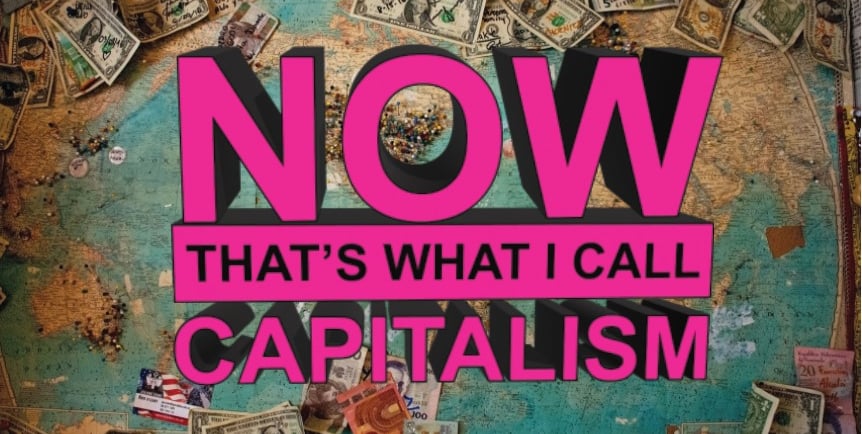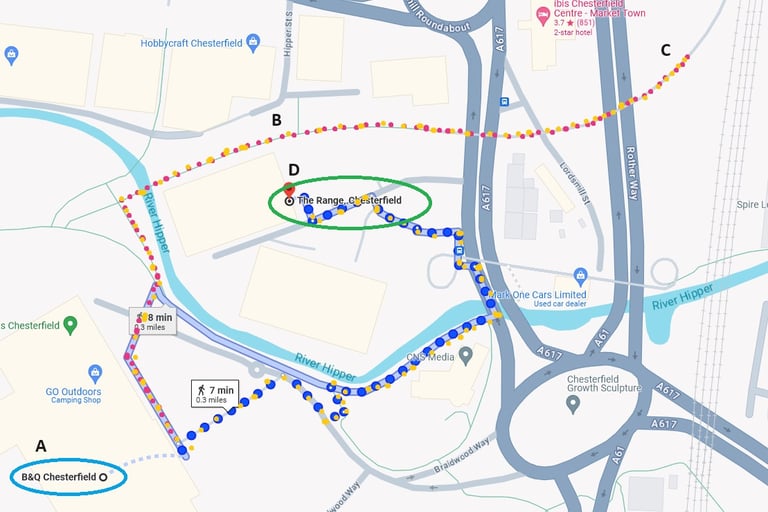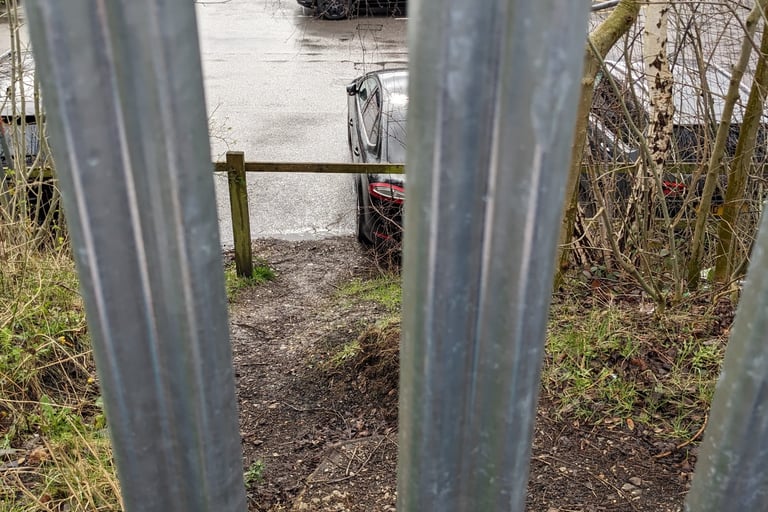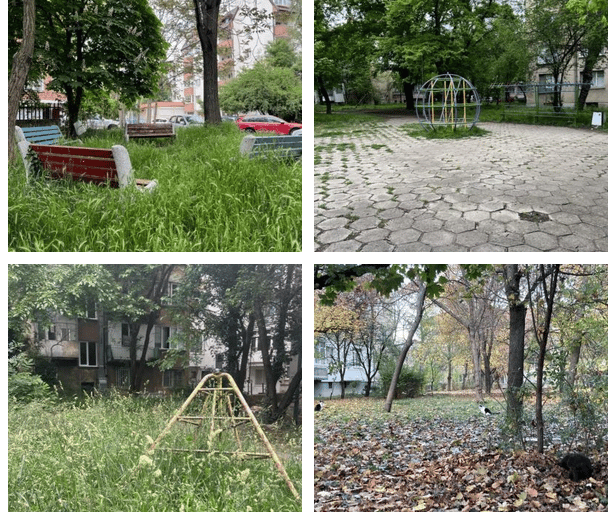Bad planning and land ownership
Almost everyday I'm struck by something in my life made more difficult because of capitalism. This is a first in a series of blogs "Now that's what I call capitalism" where I'll vent my daily frustrations of life under capitalism.
NOW THAT'S WHAT I CALL CAPITALISM
Emma Woods
3/21/20244 min read


First up; bad planning
It's a rainy Sunday morning, staying in with two young children is a bad idea so we decide to go to B&Q so they can run around in the sheds. Side note this was a terrible idea as B&Q only have 3 sheds on display, the kids got bored after 2 minutes and nearly got squashed by Sunday DIYers several times. Avoid. If you're wondering why B&Q seemed like a viable place to take young kids that's a whole other blog post.
With B&Q a bust we head to The Range. In Chesterfield you can literally see The Range from B&Q so I decide to go ahead with the kids and walk there. Second error of the day. Of course walking from one shop to the other is a terrible idea when cars are prioritised over pedestrians in our car centric town and city centers.
Map of Chesterfield showing the route of the disasterous Sunday morning walk
In the absence of signage, we follow a pedestrian crossing and then onto a path which goes around the outside of The Range.
Desire path cut by pedestrians
We reach point D and see that a massive fence has been erected cutting off the desire path cut by previous pedestrians. Frustrated I keep walking. "There must be a cut through somewhere" I think. There isn't. We keep wakling all the way to point C before realising its hopeless. Chesterfield council have managed to create a path that's almost like a tunnel - trapped by high fences on each side with two small, tired, hangry children and cyclists whizzing past I'm starting to feel stressed and frustrated.
I realise we are going to have to walk all the way back to B&Q, along the path we should have followed and along a busy road. We get there only to be met by a path that leads into a car park with no pavements. Traversing the car park with two small humans whilst drivers get angry at us for daring to walk on "their" car park just ramps up the stress and frustration further. What should have taken 7 mins (2 mins by car) has turned into a 35 minute ramble that made me wish we'd never left the house. How can something as simple as a walk from A to B be so stressful?
Capitalism, that's why
One of the necessities for capitalism to function are the rights of private property. Fundamentally capitalism is about capital accumulation, and without rights to private property individuals can't accumulate capital. Property rights and capitalism go hand in hand. Land is just one form of capital, but arguably one of the most important.
"The land enters into everything...the food the people eat, the water they drink, the houses they dwell in, the industries on which their livelihood depends. Yet most of the land is in the hands of the few" Lloyd George.
I'd guess that the majority of the UK population are supportive of the rights of private ownership, but are we aware of the inequality of land ownership and the impacts this has on our everyday life?
"Currently, in our "property-owning democracy", nearly half the country is owned by 40,000 land millionaires, or 0.06 per cent of the population, while most of the rest of us spend half our working lives paying off the debt on a patch of land barely large enough to accommodate a dwelling and a washing line." The Land Magazine
Nearly 20% of land in England is owned by companies; with overseas companies buying nearly 280,000 acres of land in England and Wales between 2005 and 2014. With companies driven by profit and overseas entities avoiding tax, they are using one of societies most precious commodities to extract profit, accumulate wealth and avoid contributing to society through taxes, which should be a bare minimum of a civilised society.
Who owns the land deserves a whole other blog post but for now its enough to begin questioning, who owns the land, for what purpose and how does this impact our lives? Which takes me back to my rainy Sunday morning walk.
With land parcelled off into small private lots, owners are free to make decisions that maximise their utility in economics parlance. I would guess The Range erected the fence cutting off the desire path due to worries about theft from shops or cars. In the calcuation of losses from theft vs. upsetting pedestrians the outcome is clear to see. There's no incentive for The Range to make their shop walkable as our towns and cities have slowly become car centric with car parks more important than pavements. Councils lack the resources to force developers and land owners to make developments accessible to pedestrians and cyclists which makes their comittments to sustainability somewhat hollow.
-------------------------------------------------------------------------------------------------------
To close, before I get angry comments that this isn't down to capitalism, just poor planning that happens under any economic system I invite you to listen to this 99% Invisible podcast episode that looks at interblock parks in Sofia, Bulgaria.
4 different interblock parks from Sofia, Bulgaria in varying states of disrepair
Following the Bulgarian Communist Party's rise to power, Sofia's landscape was transformed through the erection of residential tower blocks and interblock parks which served as places to socialise, play and enjoy nature.
Whist the parks fell into disrepair as communism began to fall apart, what's happened since acts as a stark reminder of the enclosure of land under capitalism.
Since 1989 Sofia has lost half of its green space.
Where residents could previously walk from their home, through green parks to access work, education and services, the privatisation of land has made this much more difficult with fences now preventing people walking where they used to. Which brings us full circle back to my disasterous rainy Sunday morning walk.
I leave you with invitations to reflect on; who owns the land? For what purpose? Does this model of land ownership serve people and planet?






